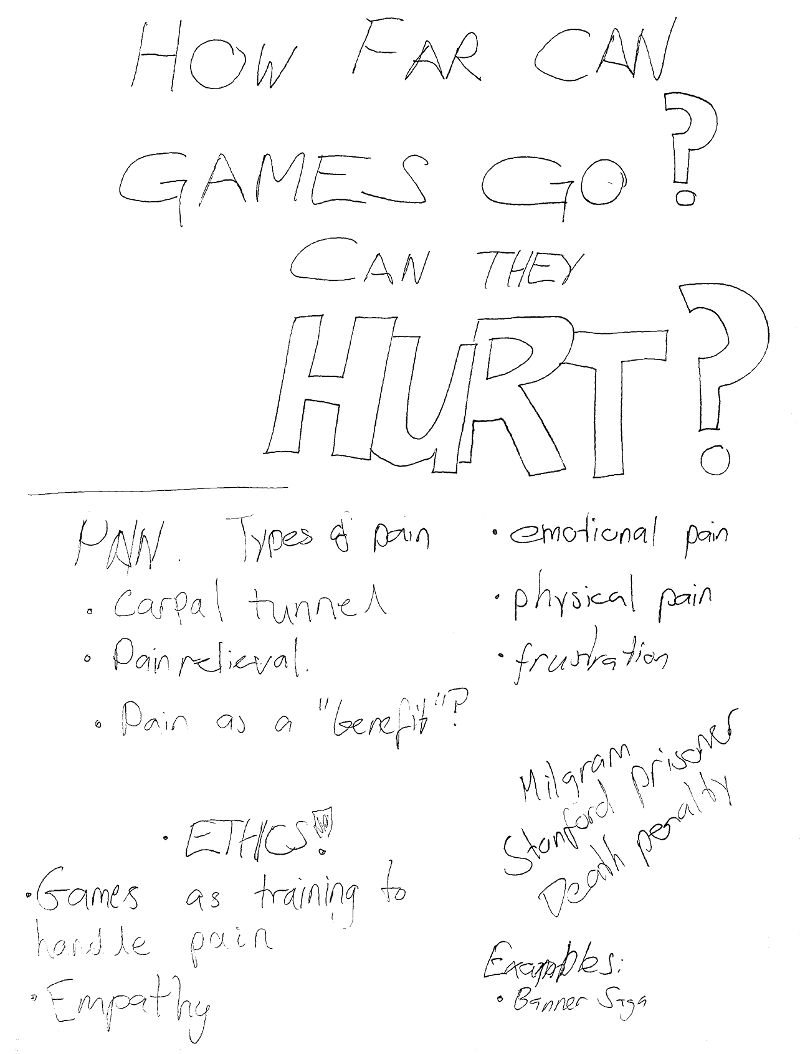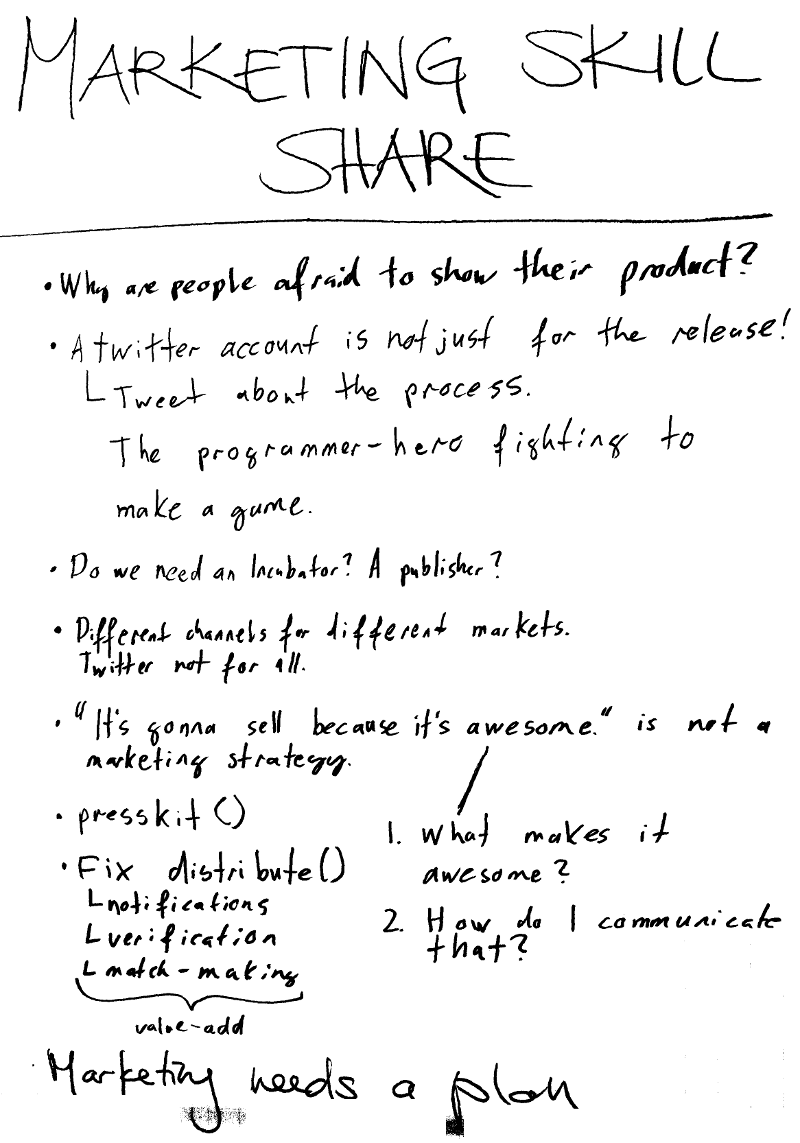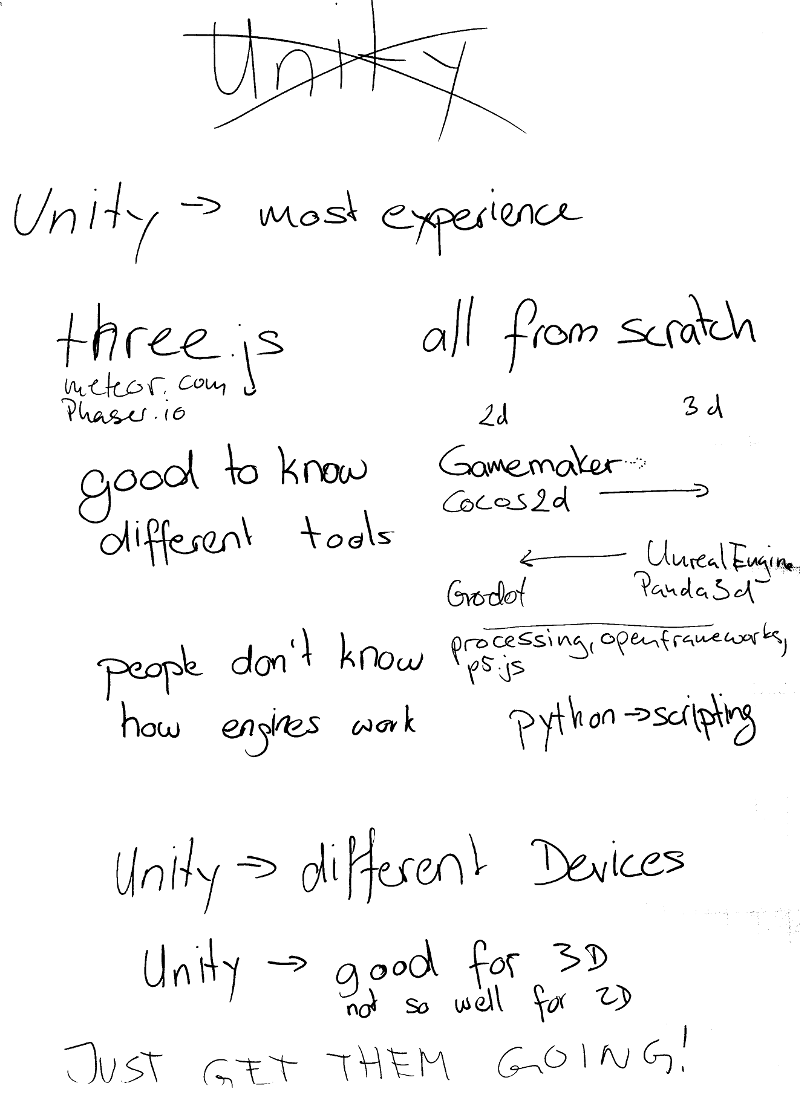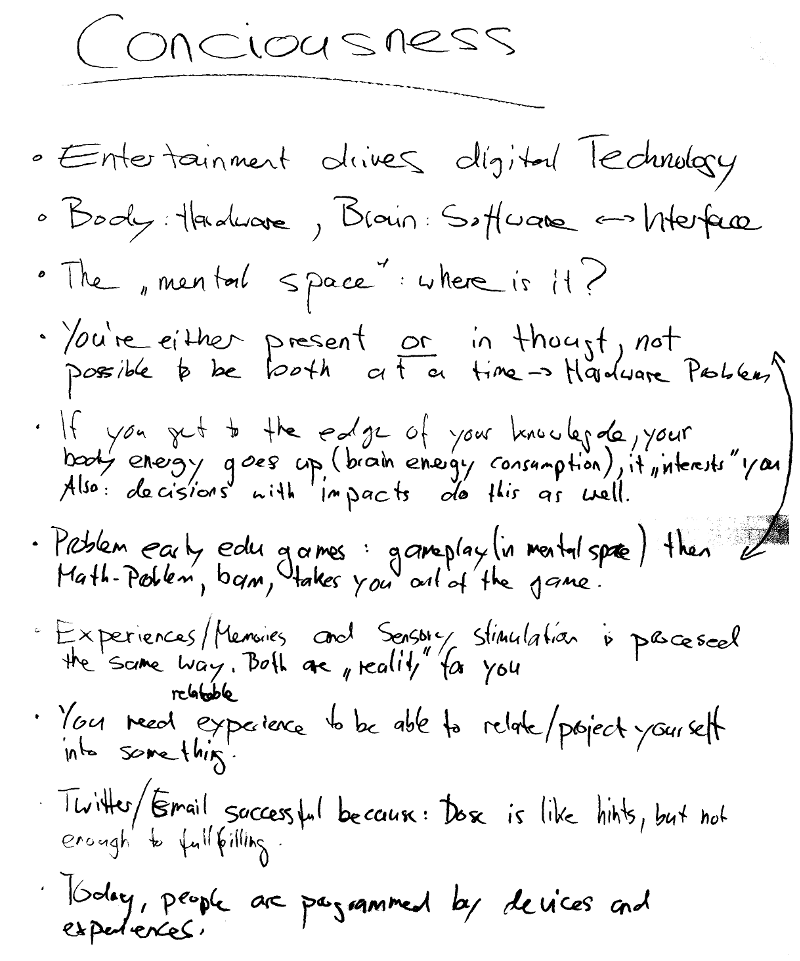If you attended the unconference and would like to contribute additional notes, thoughts, or summaries of what was discussed in one of the sessions, please get in touch.
I also wrote a postmortem of how it went from an organizational perspective. A future unconference is vaguely planned towards the end of 2016. More details will forthcome.
Pain

How far can games go? Can they hurt?
- Types of pain: emotional pain, physical pain, frustration
- Carpal tunnel
- Pain relief
- Pain as a "benefit"?
- Milgram, Stanford prisoner, Death penalty
- Ethics!
- Games as training to handle pain
- Empathy
- Examples: Banner Saga
The Indie Bubble

- FTL went on Steam -> $$$
- v1.0: Steam = Rich
- Greenlight Gold Rush
- Open the Floodgates
- Now:
- "Good" games with 75% positive Steam reviews
- "Bad" games with fewer
- The pie is still split so that 3/4 of $ goes to "good games"
- But there's many many more bad games now.
- "Triple Indie" is like Romero's ideal Team size (~9)
Marketing Skill Share

- Why are people afraid to show their product?
- A Twitter account is not just for the release!
- Tweet about the process. The programmer-hero fighting to make a game.
- Do we need an Incubator? A publisher?
- Different channels for different markets. Twitter not for all.
- "It's gonna sell because it's awesome." is not a marketing strategy. What makes it awesome? How do I communicate that?
- presskit()
- Fix distribute(): Notifications, verification, match-making are value-added.
- Marketing needs a plan
Alternatives to Unity

- Unity -> most experience
- three.js, meteor.com, phaser.io
- all from scratch
- good to know different tools
- people don't know how engines work
- Gamemaker, Cocos2d, UnrealEngine, Godot, Panda3D, processing, openframeworks, ps.js
- Unity -> different Devices
- Unity -> good for 3D, not so well for 2D
- Just Get Them Going!
Games & Consciousness

- Entertainment drives digital Technology
- Body: Hardware, Brain: Software <-> Interface
- The "mental space": where is it?
- You're either present or in thought, not possible to be both at a time -> Hardware problem
- If you get to the edge of your knowledge, your body energy goes up (brain energy consumption), it "interests" you. Also: decisions with impacts do this as well.
- Problem early edu games: gameplay (in mental space) then Math-Problem, bam, takes you out of the game.
- Experiences/Memories and Sensory Stimulation is processed the same way. Both are "reality" for you
- You need relatable experience to be able to relate/project yourself into something.
- Twitter/Email successful because: Dose is like hints, but not enough to fullfilling.
- Today, people are programmed by devices and experiences.
